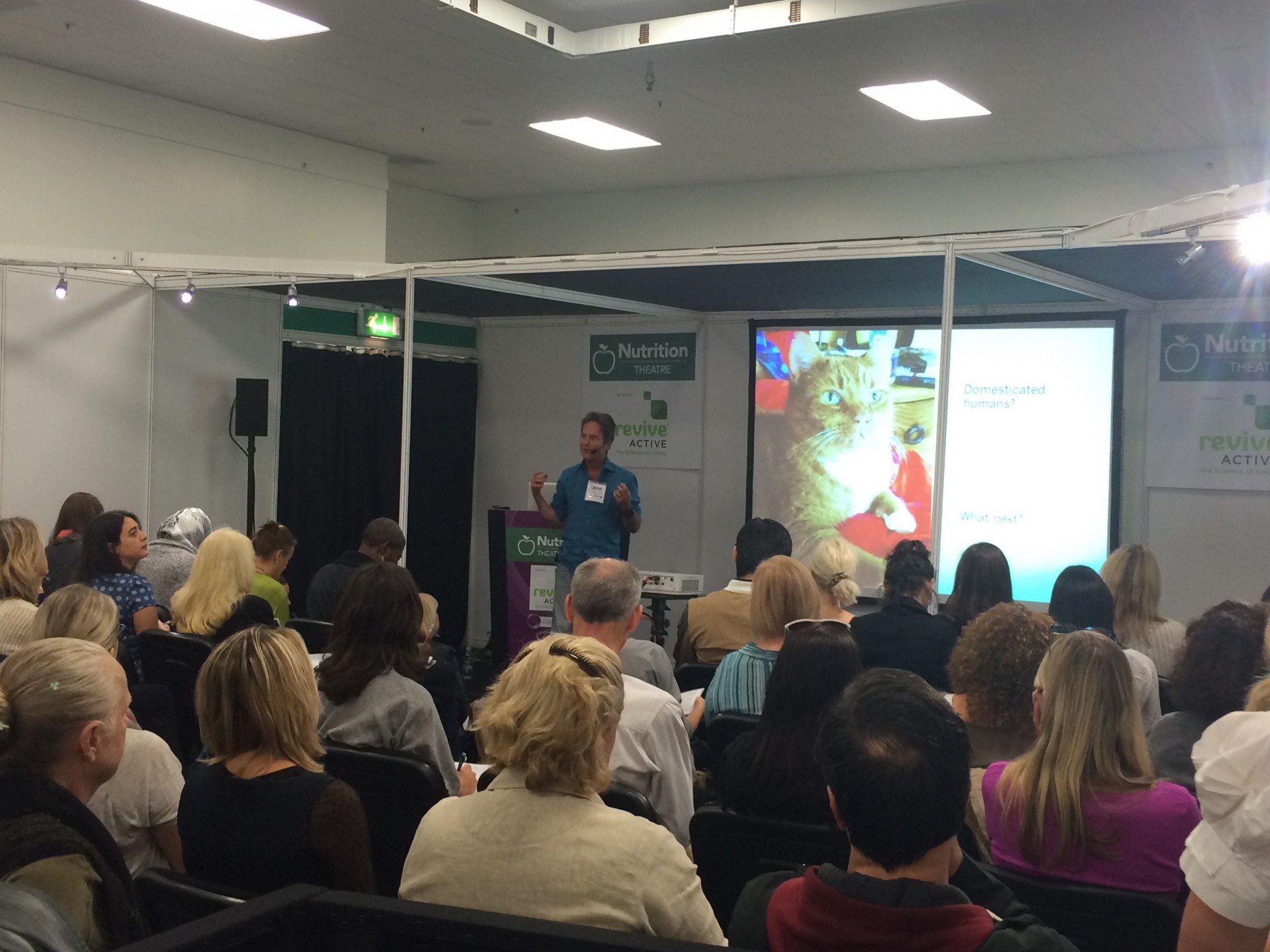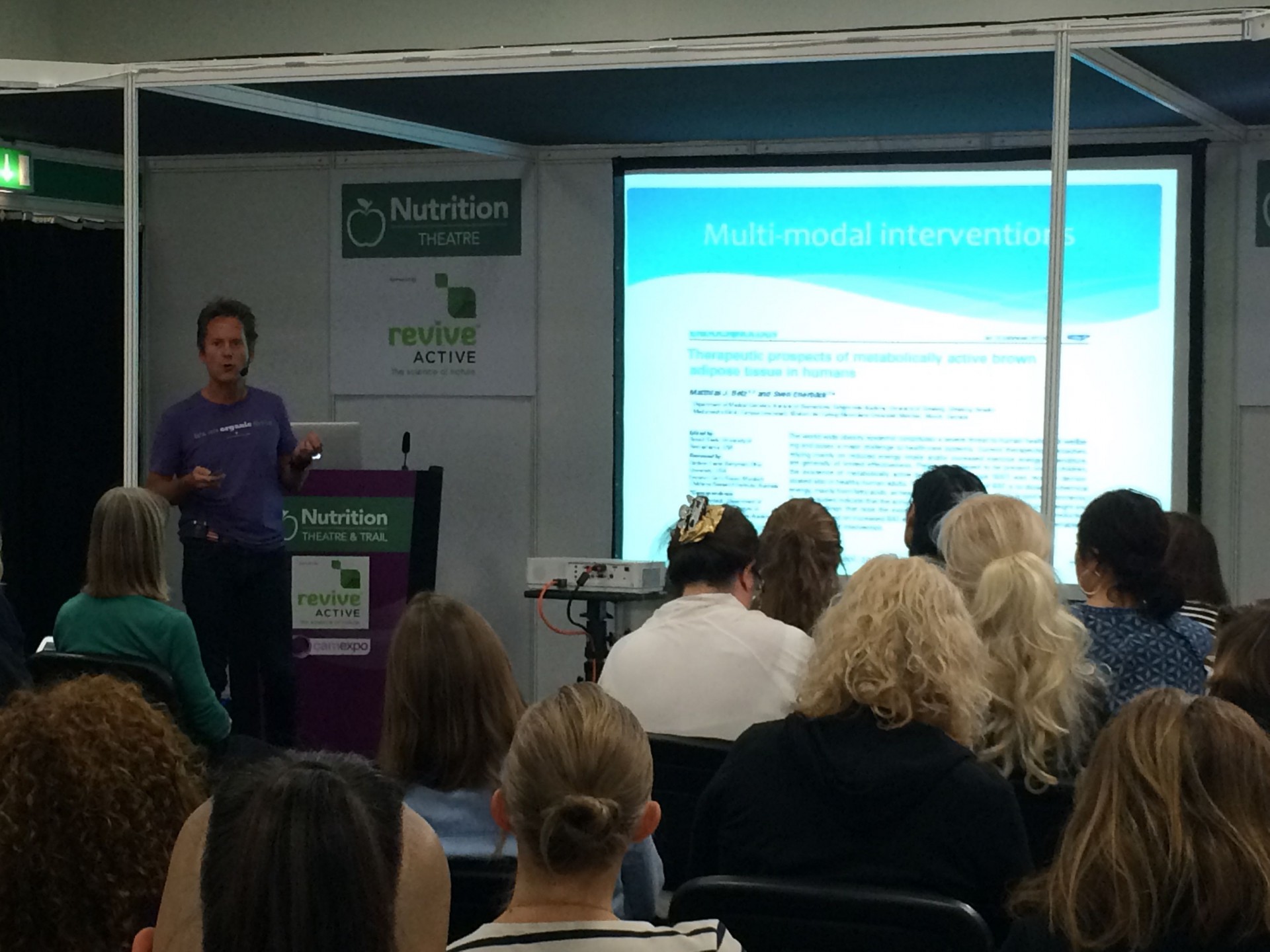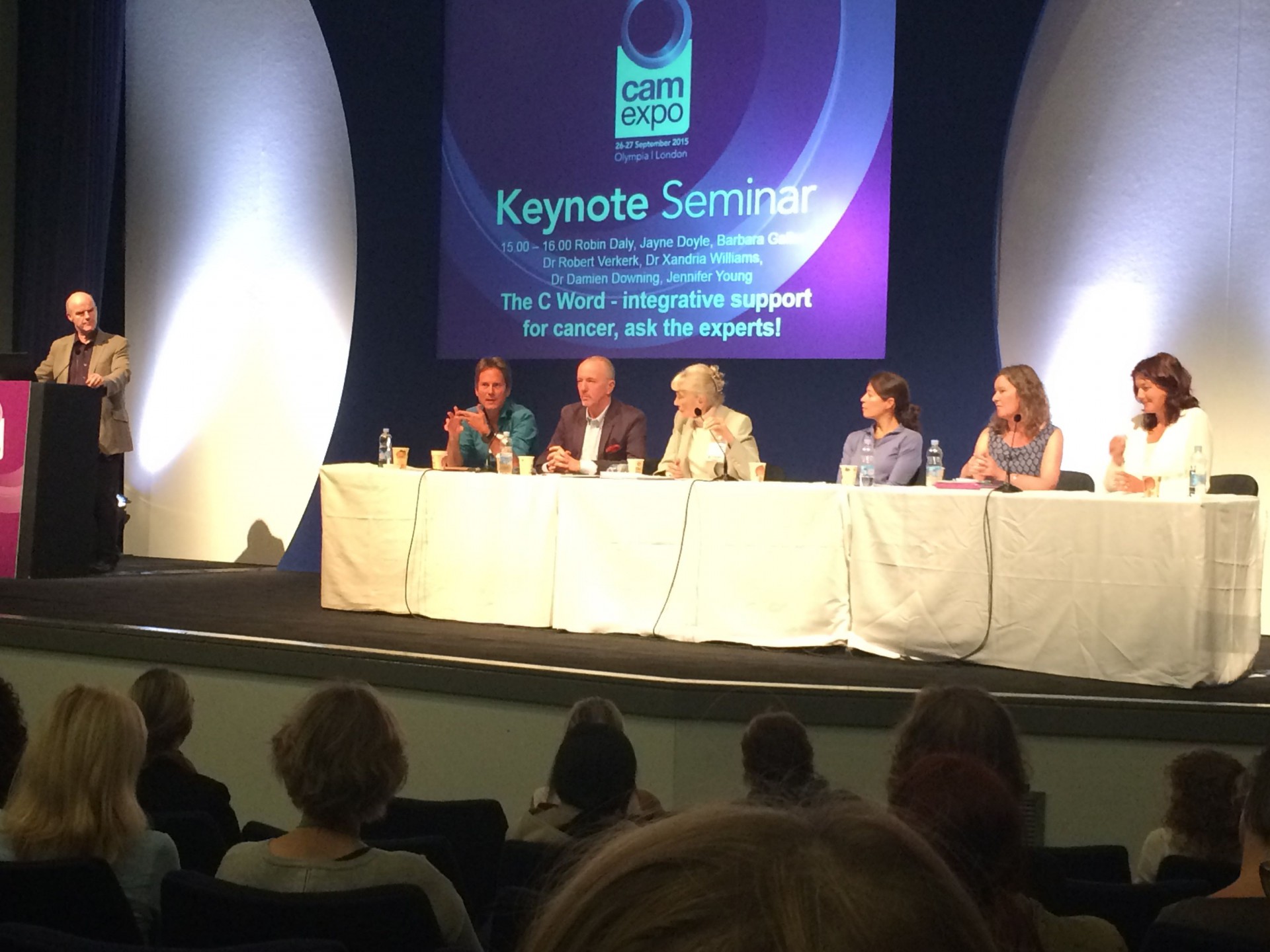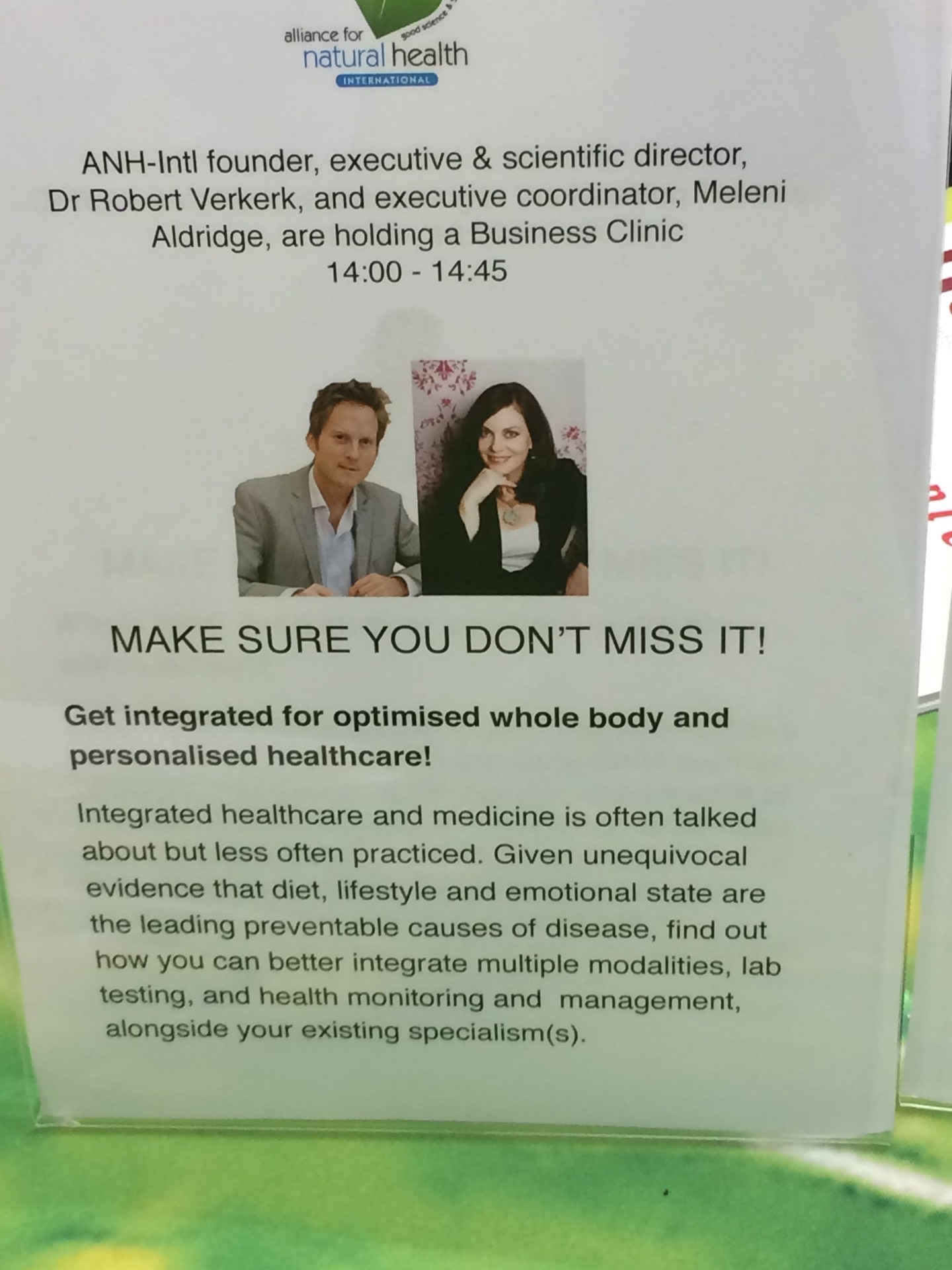Our team were flat-out at London’s Olympia last weekend participating in a record 4 events at CAMexpo. CAMexpo is the biggest trade show specifically for CAM (complementary & alternative medicine) practitioners in the UK.
It was—in our humble opinion—the best CAMexpo yet and a huge shout-out to Zoe Campbell and her team at Diversified Business Communications for working so hard to make it happen!
Our founder, Rob Verkerk PhD, gave two presentations, participated on a panel debate organised by our friends at Yes to Life and, along with our executive coordinator Meleni Aldridge, ran a ‘business clinic’. This last session aimed at helping clinicians to deliver more integrated approaches for better outcomes. All the presentations were packed, with standing room only.
Following are key points, downloads and outlines of the events in which we participated.
Presentation 1: Whole food, food state or synthetic nutrients – which is best?
- Many people do not consume all the nutrients they need (even according to the lowly reference levels used by government authorities) for long-term health
- Since the 1990’s, diets that contain high vegetable and fruit levels and diversity have consistently shown lower all-cause, cardiovascular disease and cancer mortality.
- Intervention studies on beta-carotene, vitamin E and folic acid have generally shown either marginal benefit or even slight risk, although these may be related to methodological issues with the studies.
- The evidence points to the synergistic interactions between nutrients within the food matrix, being among the main reasons why foods have been demonstrated as more effective disease risk reduction agents than isolated supplements.
- Accordingly a range of newer products containing food forms of nutrients, broad spectrum phytonutrients, natural source vitamins and multi-target botanicals are being brought to market.
- There is increasing interest in using fermentation techniques to render nutrients to more compatible with natural metabolic processes.
Rob Verkerk presenting at CAMexpo 2015
Presentation 2: ‘Keto-adapt’ your clients in 3 months in 8 easy steps
- This presentation does not concern medical ketogenic diets (> 75% fat as energy) as used in treatment of brain tumours, epilepsy and autism given these generally result in muscle loss.
- The focus is on ‘cyclic ketogenic lifestyles’ in which diet is managed alongside caloric restriction, intermittent fasting and exercise, to induce a non-permanent state of nutritional ketosis.
- Key elements of nutrition in such programmes include development of metabolic flexibility, ready beta-oxidation of fatty acids from food, consumption of an anti-inflammatory, phytonutrient rich and relatively high level of healthy fats (> 50% energy). Protein intakes should be moderate (1-1.4 g/kg body weight) and refined carbohydrates and gluten entirely eliminated.
- Also important is developing training programmes including ones in which exercise occurs approximately twice weekly in a fasted state, that trains the body’s 3 energy systems (creatine phosphate system, anaerobic/fast glycolysis and aerobic/slow glycolysis).
- While ATP production from fatty acids is low the total availability in an average adult is far greater than that from muscle/liver glycogen. Beta-oxidation of fatty acids also represents the cleanest burning metabolic fuel.
- Specific monitoring hardware e.g. body composition scales, food measurement scales, heart rate monitor and acetone breathalyser are recommended.
- An 8-step outline to a ‘cyclic keto-adaptation programme’ is given.
Rob presenting his second talk at CAMexpo 2015
Panel debate: The C Word: Supporting cancer patients with complementary therapies – your questions answered.
Given the high incidence of cancer in our society, many practitioners must deal with people with cancer. Medical doctors face being struck off the medical register for treating cancer by non-authorised methods (principally chemotherapy, radiotherapy and surgery) while non-medically qualified practitioners must focus their efforts on the person, rather than the disease, to avoid the wrath of the Cancer Act 1939.
Based on answers given by the panellists, a convincing argument was made for practitioners to be mindful but not fearful of the Cancer Act while supporting cancer patients to the best of their abilities and professional capacities. The importance of collating and communicating results of clinical outcome research and patient’s stories was emphasised. It is also important to influence political and regulatory bodies, and this can be achieved by better communication of science, clinical experience and outcomes.
The C-Word Debate. From left to right: Robin Daly (standing) (debate chairperson); Robert Verkerk PhD; Dr Damien Downing; Dr Xandria Williams; Barbara Gallini; Jayne Doyle, and; Jennifer Young.
Business Clinic
For practitioners interested in our business clinic presentation, ‘Get integrated for optimised whole body and personalised healthcare’, we invite you to join the newly convened ANH International Practitioner Support group on Facebook (closed group).












Comments
your voice counts
There are currently no comments on this post.
Your voice counts
We welcome your comments and are very interested in your point of view, but we ask that you keep them relevant to the article, that they be civil and without commercial links. All comments are moderated prior to being published. We reserve the right to edit or not publish comments that we consider abusive or offensive.
There is extra content here from a third party provider. You will be unable to see this content unless you agree to allow Content Cookies. Cookie Preferences